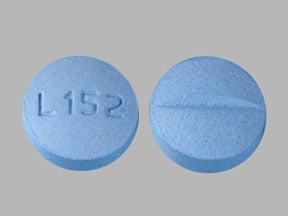
Lopressor Coupons & Savings Card – Discount Prices from $10.57
Brand for: Metoprolol tartrate
My prescription
Edit
100MG, Metoprolol Tartrate (60 Tablets)
Select pharmacy

CVS
$19.56
COUPON PRICE
Walgreens
$10.57
COUPON PRICE
Albertsons
$11.19
COUPON PRICE
Walmart
$16.48
COUPON PRICELopressor savings card
Show this card to your pharmacist
Walgreens
$10.57
BIN
ID
PCN
GRP
019876
LH7189E9AF
CHIPPO
LHX
Powered by
Related beta blockers prescriptions
More prescriptions for hypertension
Related beta blockers prescriptions
More prescriptions for hypertension
Price history for Lopressor (brand) & Metoprolol Tartrate (generic)
60 Tablets, 100MG
Average retail price for Lopressor
Average retail price for Metoprolol Tartrate
Average SaveHealth price for Metoprolol Tartrate
Our price history data is based on aggregated prescription data collected from participating pharmacies in America. Our prescription data updates daily to reflect the latest price changes. If you notice a missing data point, it means there wasn't sufficient data available to generate a monetary value for that date.
Over the last 12 months, the average discount price of Lopressor is $14.33 using the SaveHealth savings card. That's an average savings of 96.64% on Lopressor with our discount card.
*Retail prices are based on pharmacy claims data, and may not be accurate when we don't have enough claims.
Lopressor (Metoprolol Tartrate) dosage forms
Dosage Quantity Price from Per unit 50MG 30 Tablets $3.16 $0.10 50MG 60 Tablets $3.83 $0.06 50MG 90 Tablets $10.99 $0.12 50MG 180 Tablets $18.58 $0.10 50MG 270 Tablets $20.36 $0.07 100MG 60 Tablets $10.57 $0.18 100MG 30 Tablets $9.79 $0.33 100MG 90 Tablets $17.36 $0.19 100MG 180 Tablets $19.72 $0.11 100MG 270 Tablets $22.08 $0.08
| Dosage | Quantity | Price from | Per unit |
|---|---|---|---|
| 50MG | 30 Tablets | $3.16 | $0.10 |
| 50MG | 60 Tablets | $3.83 | $0.06 |
| 50MG | 90 Tablets | $10.99 | $0.12 |
| 50MG | 180 Tablets | $18.58 | $0.10 |
| 50MG | 270 Tablets | $20.36 | $0.07 |
| 100MG | 60 Tablets | $10.57 | $0.18 |
| 100MG | 30 Tablets | $9.79 | $0.33 |
| 100MG | 90 Tablets | $17.36 | $0.19 |
| 100MG | 180 Tablets | $19.72 | $0.11 |
| 100MG | 270 Tablets | $22.08 | $0.08 |
Is Lopressor the same as metoprolol?
Lopressor is a brand name for the drug metoprolol. Metoprolol is the generic name, and it is available under several brand names, including Lopressor. Both contain the same active ingredient and are used to treat similar conditions.
What to avoid when taking Lopressor?
When taking Lopressor, it is important to avoid consuming alcohol, as it can increase the risk of side effects such as dizziness or lightheadedness. Additionally, one should avoid activities that require alertness, such as driving or operating heavy machinery, until they know how the medication affects them. It is also advisable to avoid sudden discontinuation of the medication without consulting a healthcare provider, as this can lead to adverse cardiovascular effects. Lastly, certain over-the-counter medications, particularly those for colds or allergies, may interact with Lopressor, so it is best to consult with a healthcare provider before taking them.
What does Lopressor do for AFIB?
Lopressor, which is a brand name for metoprolol, is a beta-blocker that can help manage atrial fibrillation (AFIB) by slowing down the heart rate. This can help control symptoms such as palpitations and improve overall heart function. It may also help in reducing the risk of complications associated with AFIB. However, it is important for patients to follow their healthcare provider's instructions regarding dosage and use.
Does metoprolol do anything for AFib?
Metoprolol is often used to help manage atrial fibrillation (AFib) by controlling the heart rate. It is a beta-blocker that works by slowing down the heart rate, which can help reduce symptoms associated with AFib, such as palpitations and shortness of breath. However, it does not typically convert AFib to a normal heart rhythm.
What is the generic name for Lopressor?
The generic name for Lopressor is metoprolol.
